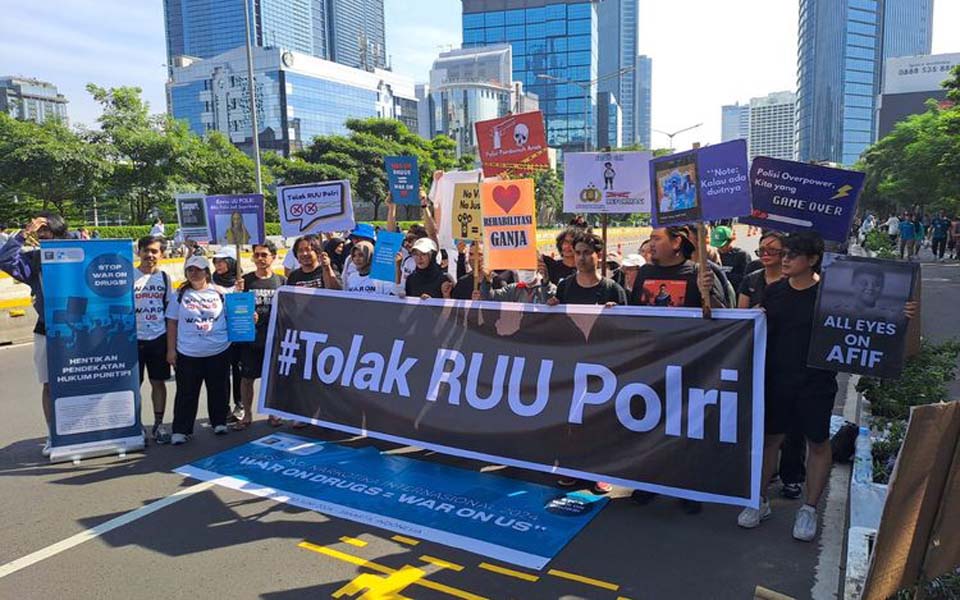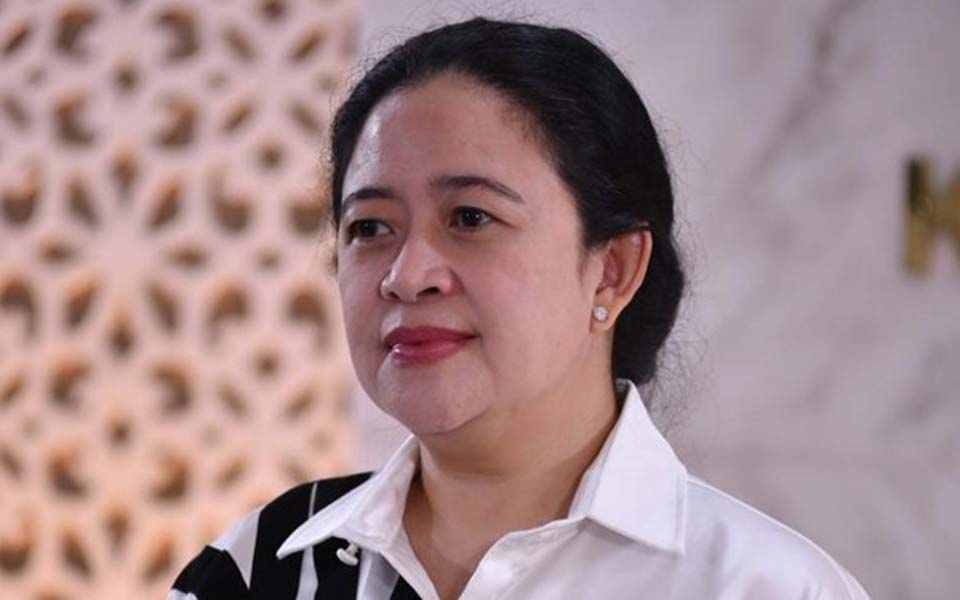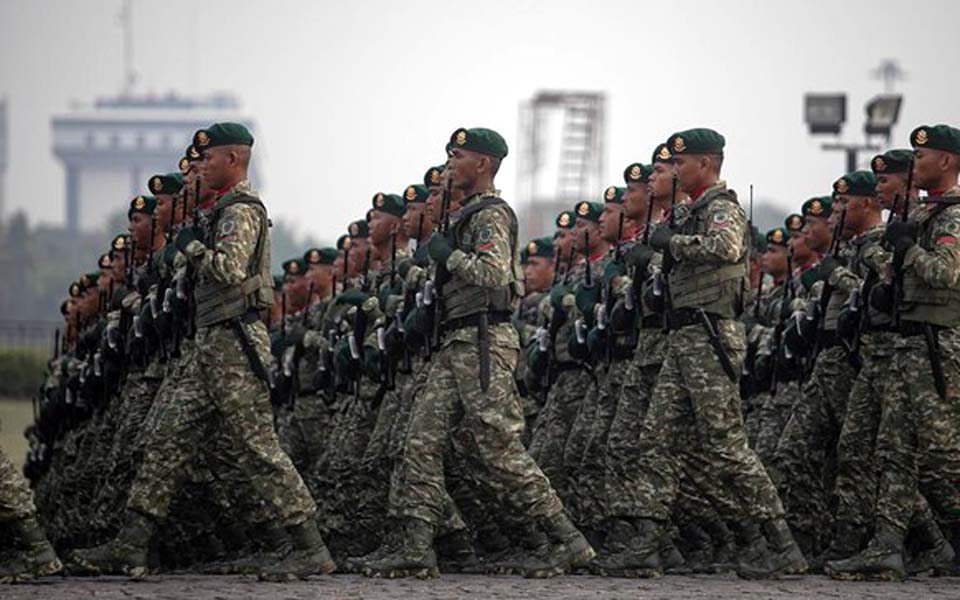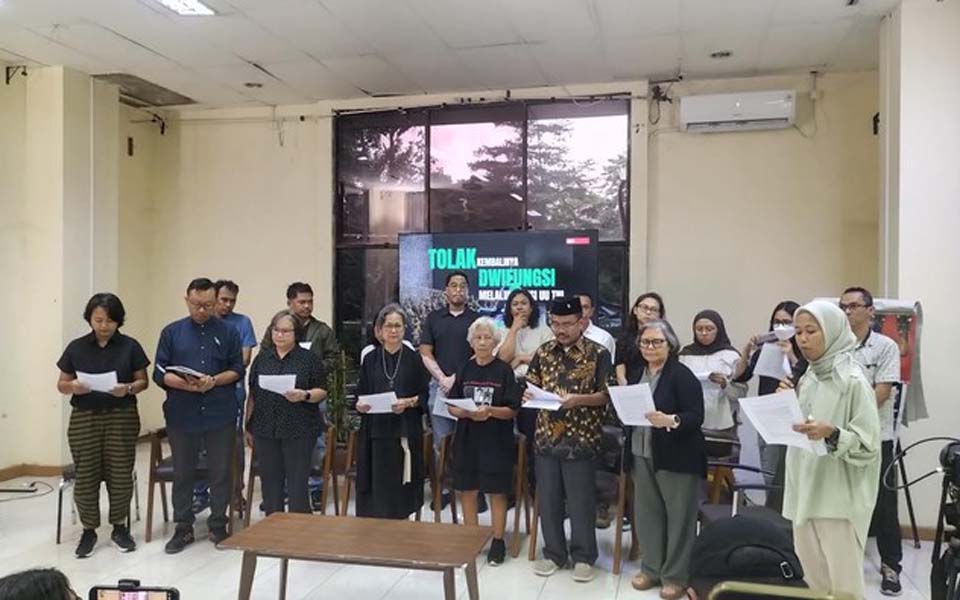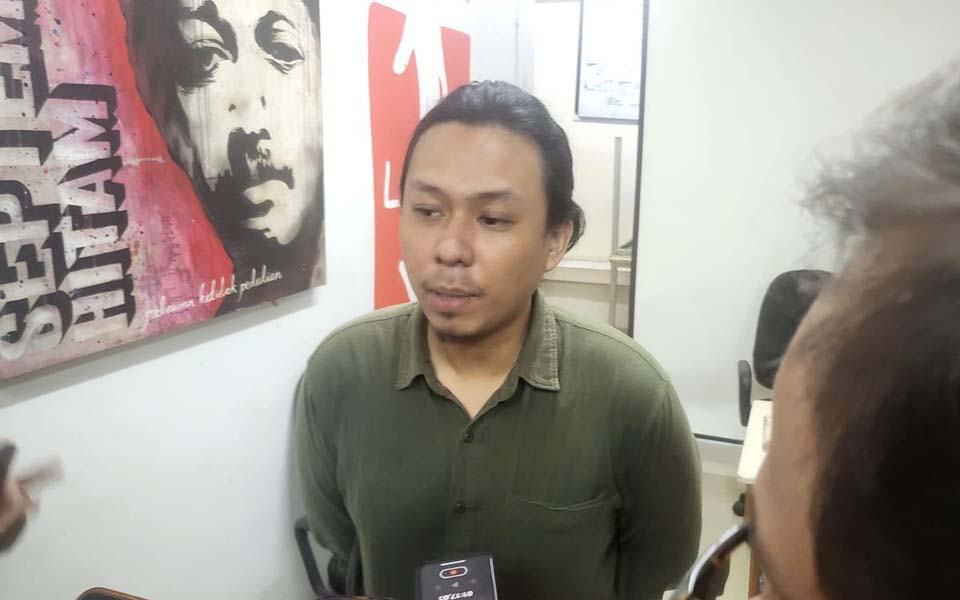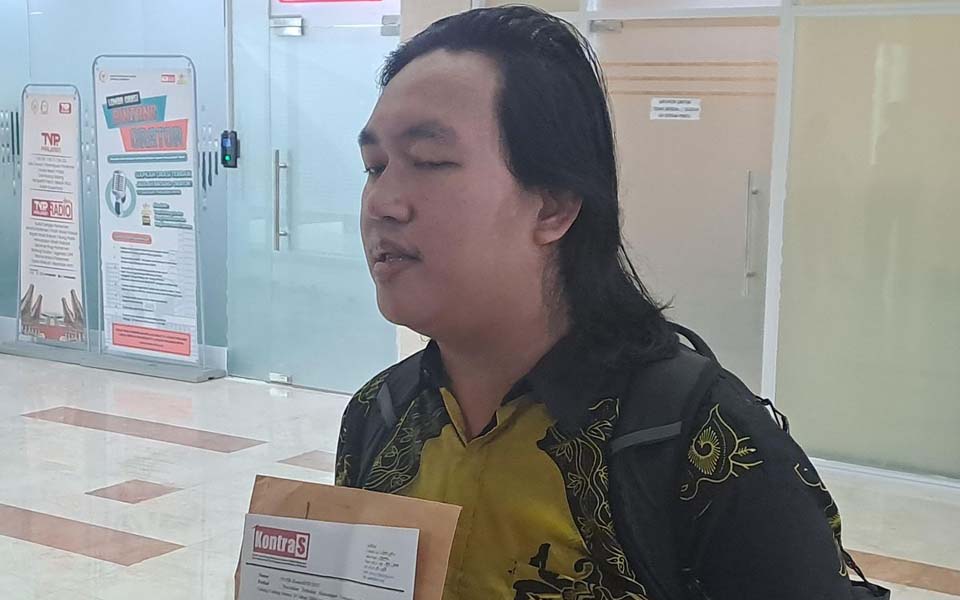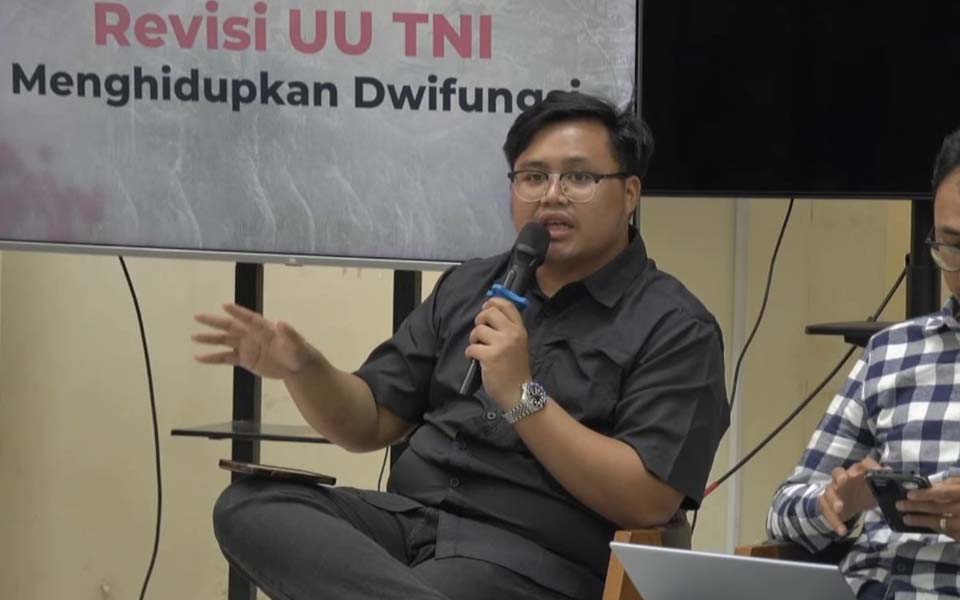Adhyasta Dirgantara, Ambaranie Nadia Kemala Movanita, Jakarta – The Civil Society Alliance for Police Reform held a demonstration to reject revisions to the National Police Law (UU Polri) on Car Free Day (CFD) in Central Jakarta on Sunday June 30.
Coalition representative and former Alliance of Independent Journalists (AJI) chairperson Sasmito Madrin said that the police's powers would exceed those of the president if the revisions are enacted.
Madrin also highlighted the many police officers who remain in the force despite committing criminal offences.
He gave as an example of the 2020 Kanjuruhan football stadium stampede case in Malang that resulted in the death of 135 people, which in the end blamed wind direction for the tragedy, not the police officers who fired the teargas.
Madrin also protested the actions of police in the case of a 13-year-old boy named Afif Maulana who died in Padang, West Sumatra on June 9, allegedly due to police mistreatment.
"The police murdered the victims at Kanjuruhan, but still remained members of the police. The police committed the murder of Afif, but still remain police officers. That means that the police today have become a super body", said Madrin in a speech.
"So it’s not wrong if we say the NKRI [Unitary State of the Republic of Indonesia] is the Police State of the Republic of Indonesia [Negara Kepolisian Republik Indonesia]. Because the police's powers exceed the president. No police are found guilty and then punished", he continued.
Madrin asserted that the civil society coalition rejects the revision of the National Police Law. He said the National Police need to be reformed by the people.
For example, the violence that police often commit against the public, to corruption within the National Police which the Corruption Eradication Commission (KPK) finds difficult to touch.
"The first is violence against journalists, the public, young children, vulnerable groups, many of which we have encountered in Indonesia, in Wadas, in Rempang, in Malang, we find police violence", Madrin explained.
"Second, corruption. We still find a lot of corruption in the National Police institution. But again because of its very strong authority, the KPK agency that we hope would carry out law enforcement against cases in the National Police, was actually weakened by President Jokowi [Joko Widodo]", he continued.
Meanwhile, Institute for Criminal Justice Reform (ICJR) Director Erasmus Napitupulu said that the National Police should return to serving the public, not to prioritising the elite.
He invited the National Police to look at the struggle of the ordinary people during the era of reformasi – the political reform process that began in 1998 – not instead prioritising personal gain.
"Today we have an RUU Polri [Draft Law on the National Police] whose purpose is to strengthen its authority, it's not talking about supervision. People die, die of mistreatment, 135 people died in Kanjuruhan, the perpetrators in the field are not prosecuted. The wind direction was wrong. We are fed up", said Napitupulu.
Napitupulu said that the public wants a legal system and a police force that is good.
However, he said, especially in narcotics cases, the police instead sell evidence, as was done by the former West Sumatra Regional Police Chief Inspector General Teddy Minahasa.
He then expressed confusion over the revisions to the National Police Law which instead increase the police's authority.
"The ordinary people must remember, in 1998 the ones who separated the police from the military were not the elite, but the people. We were screaming, blood was spilled, the blood of the students who shouted in the streets on Jalan Sudirman in Semanggi. We are speaking in the name of those who have been arrested, the victims that are tortured, the victims who are coerced", added Napitupulu.
The following are a number of points in the revisions to the National Police law that were highlighted.
1. Additional police powers
Article 16 of Law Number 2/2002 on the National Police stipulates that the police are authorised to do the following:
- Conduct arrests, detentions, searches and confiscations
- Prohibit any person from leaving or entering the scene of a case for the purpose of an investigation
- Bring people before investigators in the context of an investigation
- Order suspicious people to stop and be questioned as well as check their identification
- Conduct an examination of and the confiscation of documents
- Summon people to be heard and questioned as suspects or witnesses
- Present experts that are needed in relation to the examination of a case
- Halt an investigation
- Submit case dossiers to the public prosecutor
- Submit a direct request with an authorised immigration official at an immigration examination office in an urgent or sudden situation to prevent or stop a person entering or leaving the country who is suspected of committing a crime
- Provide instruction on and assistance in an investigation by state civil service investigators and receive the results of a criminal investigation by state civil service investigators to be submitted to the public prosecutor
- Take other actions in accordance with responsible law enforcement
However, as quoted by a Kompas TV broadcast on Monday May 27, the draft revisions to Law Number 2/2002 on the National Police will give the police the authority to act against, block or terminate and attempt to slow down access to cyberspace for domestic security purposes.
The National Police will also have the authority to coordinate with the ministry that organises government affairs in the field of communication and telecommunications information service providers.
2. Pension age limit
Revisions to Article 30 paragraph (2) letters a and b of the National Police Law also regulate extensions to the retirement age limit for members of the National Police.
Under the article, the retirement age limit for non-commissioned and lower ranking police officers is 58 years. If needed by an organisation, the retirement age limit can be extended to 60 years.
Meanwhile the retirement age limit for commissioned officers is 60 years. The retirement age for officers who have special expertise or are needed for police duties can be extended by a maximum of two years.
The Draft Law on the National Police (RUU Polri) also regulates a pension age of 65 years for officers who occupy functional positions.
3. National police chief pension age
In addition to regulating the retirement age limit for members of the National Police, Article 30 paragraph (4) regulates the retirement age limit for the National Police Chief (Kapolri) or senior police officers with the rank of four-star general.
This article stipulates that the retirement age limit for the National Police Chief can be extended through a presidential decree (Keppres) after consideration by the House of Representatives (DPR).
However, it is does not stipulate in detail how long the retirement age limit for the National Police chief can be extended.
[Translated by James Balowski. The original title of the article was " Demo Tolak Revisi UU Polri, Aliansi Masyarakat Sipil: Kekuasaan Polisi Bakal Melebihi Presiden".]





